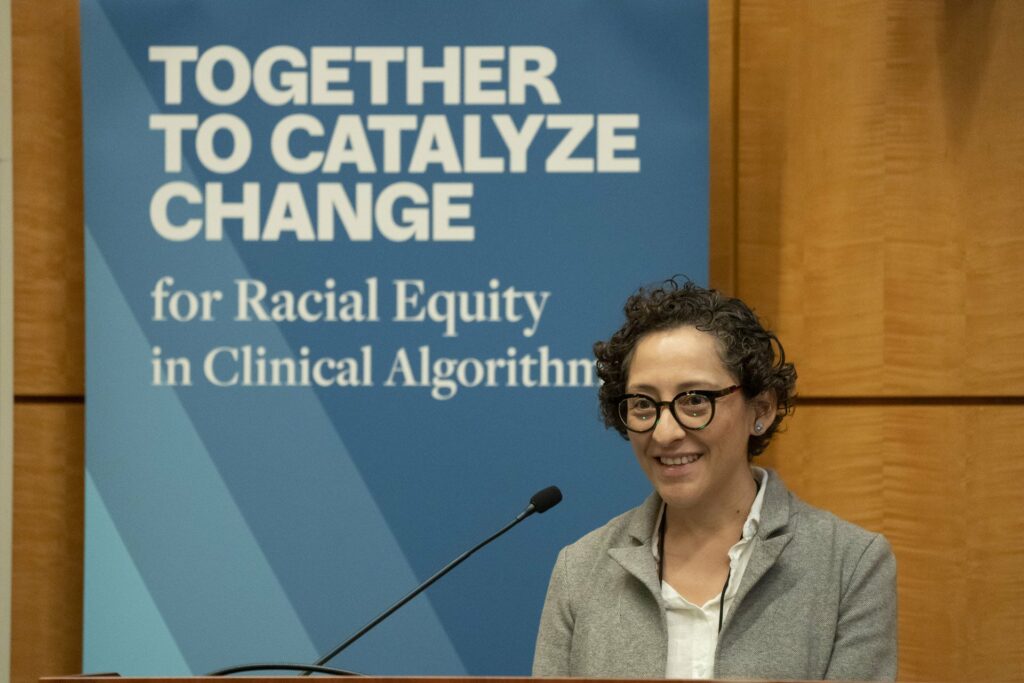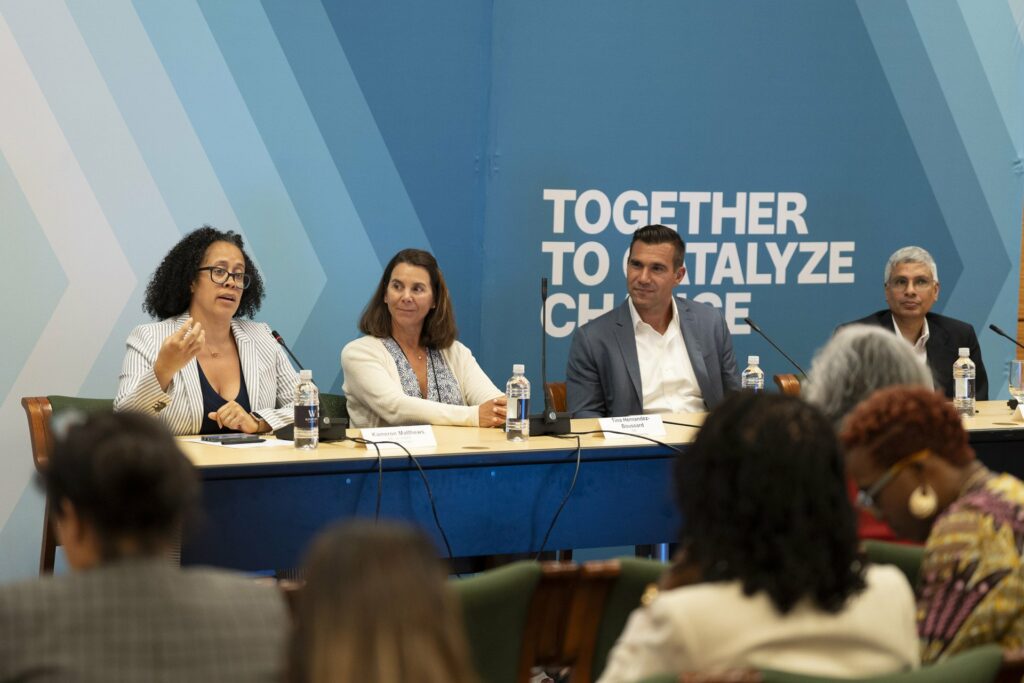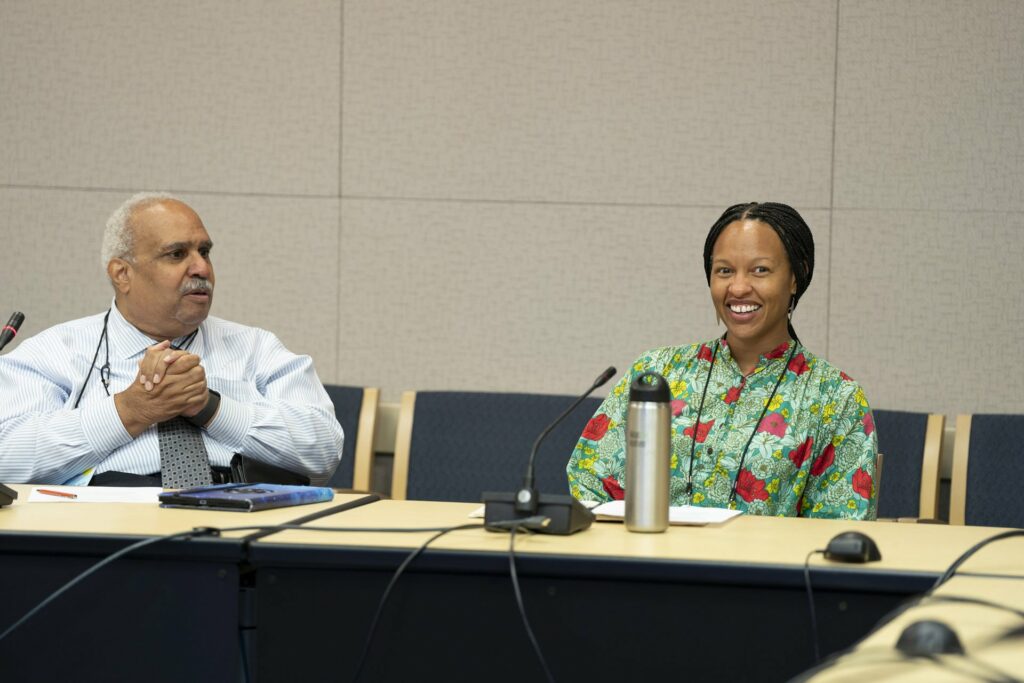


On June 21, 2024, the Council of Medical Specialty Societies, Doris Duke Foundation, and National Academy of Medicine co-convened almost 300 leaders in-person and online from medical societies, AI/ML, research, patient groups, philanthropy, and government to discuss how race is used in clinical algorithms and opportunities for collaborative strategies to accelerate change.
Throughout the event’s panels and breakout discussions, one theme became abundantly clear: While there is important work being led across sectors to reconsider the use of race in clinical algorithms, change remains slow, and there is real appetite among stakeholders to do more together to drive progress. The time is now for a concerted, broad-based effort that will enable greater coordination and collaboration, focus efforts and scale effective approaches, and accelerate impact.
Meeting proceedings and key learnings from the convening are available below.
Together to Catalyze Change: Session videos
To view videos of all sessions described in this report, please visit: https://www.youtube.com/@DorisDukeFdn



Call to Action
- Now is the time for the scientific and medical communities to revisit old assumptions, build new tools, and move forward with an equity-centered mindset.
- Race as a determinant of health, including racism and other social and environmental influences, has led to disparate outcomes for minority populations.
- This meeting represents a watershed moment, confirming the will to correct inequitable practices in the use of race in clinical guidelines and algorithms. We cannot declare the deficiencies in our current approach without joining together to build a better system to redress the misuse of race in clinical guidance.
- Research design, including the recognition that race is not a biological variable, along with the inclusion of social drivers, can spur innovative science.
- The Encoding Equity Alliance will drive the appropriate use of race in research design and clinical guidance. Inaction is unacceptable and underscores the need for an all-hands-on deck approach to engage the full community in targeted efforts to effect change – including government, societies, researchers, clinicians, hospital systems, payers, funders, regulators, and more.
Expanding Evidence Base
- Recent systematic reviews of race in clinical algorithms have demonstrated that the unexamined inclusion of race as a factor frequently exacerbates health disparities in minority communities, leading to harm. However, algorithms that intentionally include race may support efforts to address known inequities.
- A comprehensive assessment of clinical guidance documents, including guidelines and algorithms, by the American Academy of Pediatrics (AAP) demonstrated that more than half of the documents could lead to inequitable care and need immediate revision.
- New algorithms that do not include race, such as the PREVENT cardiovascular risk assessment tool, have been tested across racial groups to demonstrate their ability to equitably assess and treat individuals.
- A lack of data to validate the use of race/ethnicity adjustment factors in U.S. FRAX has led to a recent recommendation to remove race and ethnicity from the U.S. FRAX model.
Advancing Technology and Artificial Intelligence to Mitigate Harm
- New technologies can be deployed to decrease bias for marginalized communities.
- Common definitions are required to standardize and operationalize transparency and other AI model metrics, including efforts to train, improve, and remediate models to help address biases.
- Local model monitoring is critical to the ongoing validation of models deployed in geographically diverse settings.
Effective Communication Strategies & Messages
- Persistent barriers to effective communication of this issue can be addressed through critical assessment of the targeted audience and consideration of that community’s values and needs.
- Improved clinical algorithms can promote racial equity, produce higher quality care, improve patient safety, and lower risks.
- Better clinical algorithms can also help health systems abide by federal regulations on the mitigation of discrimination in patient care decision support tools.
Fostering Research and Clinical Collaborations
- Broad-based support from the clinical and research community would legitimize efforts and drive innovative results. Medical specialties need to identify gaps where additional data and research are required.
- Guideline panels should be more diverse and should commit to comprehensively assessing guidelines to determine their validity and their impact on equitable health outcomes.
